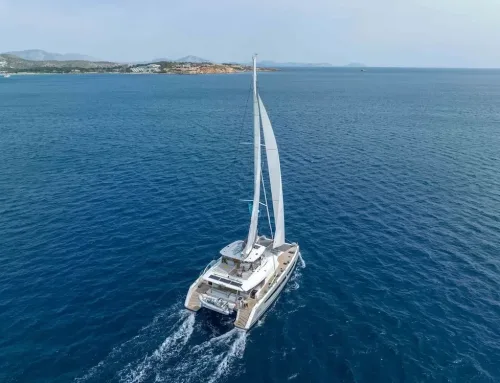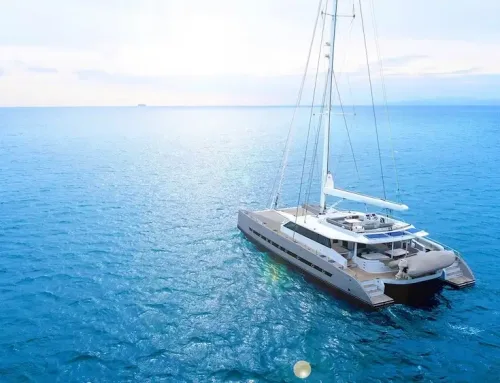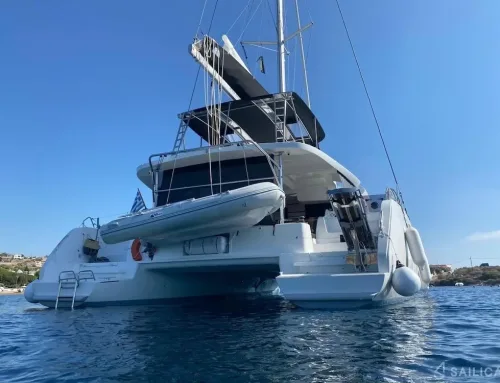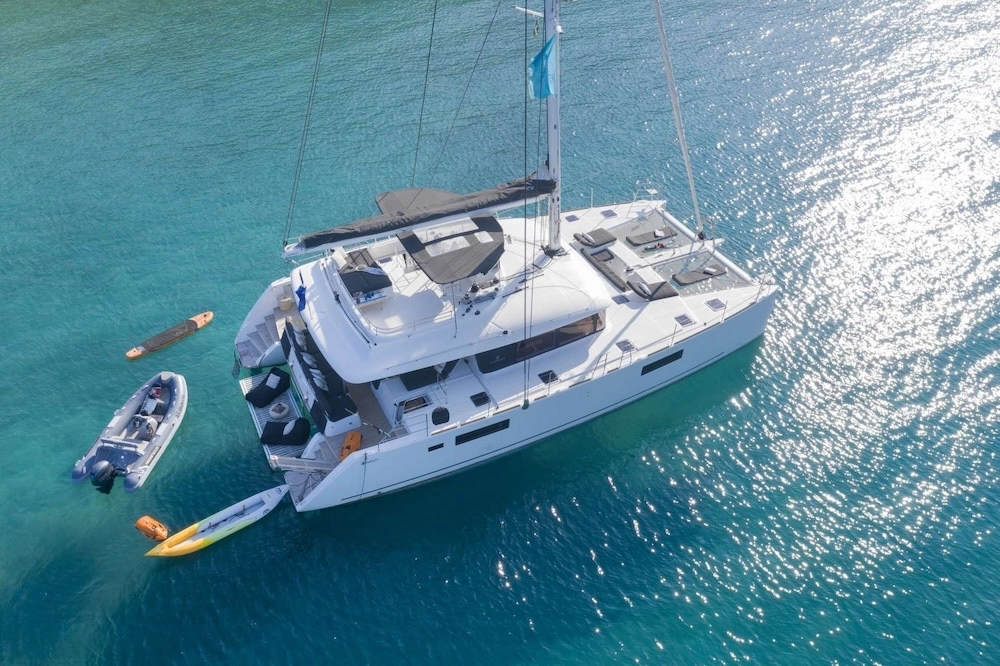
How Much Does It Typically Cost to Rent a Catamaran in Greece?
Renting a catamaran in Greece combines elegance, stability, and spaciousness to provide an unmatched opportunity to see the breathtaking Greek islands. Knowing the price of renting a catamaran is essential for budgeting, whether you’re organising a fun trip with friends, a romantic retreat, or a family vacation.
Recognising Greek Catamaran Rental Prices
Standard Rental Prices
The cost of renting a catamaran in Greece can vary significantly based on a number of variables, including the boat’s size, age, season, and extra services needed. Generally speaking, weekly rates range from €2,500 to above €15,000. It’s best to check comprehensive sources like How much is a private catamaran charter in Greece? for precise prices and possibilities.
What Does the Charter Fee Cover?
The majority of charter fees cover VAT, insurance, and the hire of the catamaran along with its standard gear. Nevertheless, the charter fee usually does not cover other costs:
- Skipper fees:Hiring a skipper is essential and adds to the cost if you are not competent to sail alone.
- Fuel costs: Fuel expenses are determined by the quantity of sailing and motor usage.
- Mooring fees: Particularly in crowded locations, the cost of docking at different ports can build up.
- Provisions: Typically, the cost of the charter excludes food, beverages, and other needs.
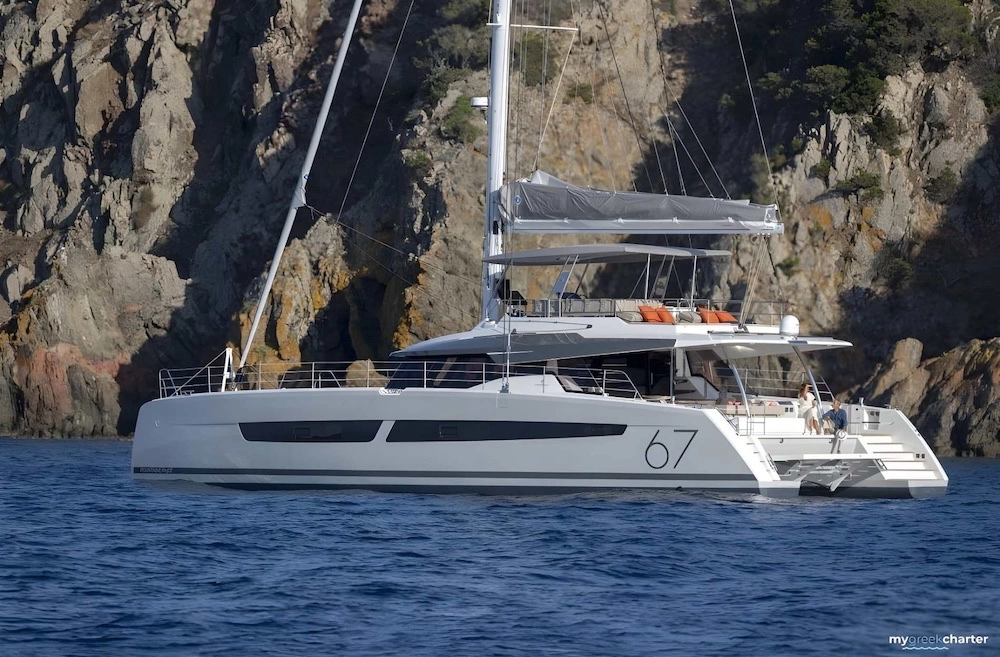
How Much Does It Typically Cost To Rent A Catamaran In Greece 2
Seasonal Differences in Cost
Seasons: High and Low
In Greece, the best months to charter a catamaran are June through August, when sailing conditions are at their best and prices are highest. The shoulder seasons (late April to May and September to October) offer nice weather and less crowds, but prices can be much lower.
Selecting the Best Season for Your Spending Cap
If your vacation dates are flexible, you might want to rent a catamaran in the shoulder season to take advantage of lower prices and fewer traffic. You may find more information about how to make this decision by exploring the costs of renting a boat in Greece.
Why Does Chartering a Catamaran Cost More?
Space and Stability
Because of their benefits over monohulls and their design, catamarans are usually more expensive. Those who are prone to seasickness may find their dual-hull shape especially appealing since it offers increased stability. Catamarans can provide extra space below deck as well as above, which improves comfort on lengthy leases.
Popularity and Facilities
Catamarans are becoming more and more popular for recreational charters, which has increased the cost of renting one. Modern kitchen facilities, spacious lounging areas, and private cabins with en suite bathrooms are just a few of the features that make them perfect for luxurious vacations
The style of catamaran, the time of year, and other expenses like skippers and mooring fees all affect the cost of hiring a catamaran in Greece. By being aware of these variables, you may organise your spending so that your Greek island vacation is as enjoyable as possible.
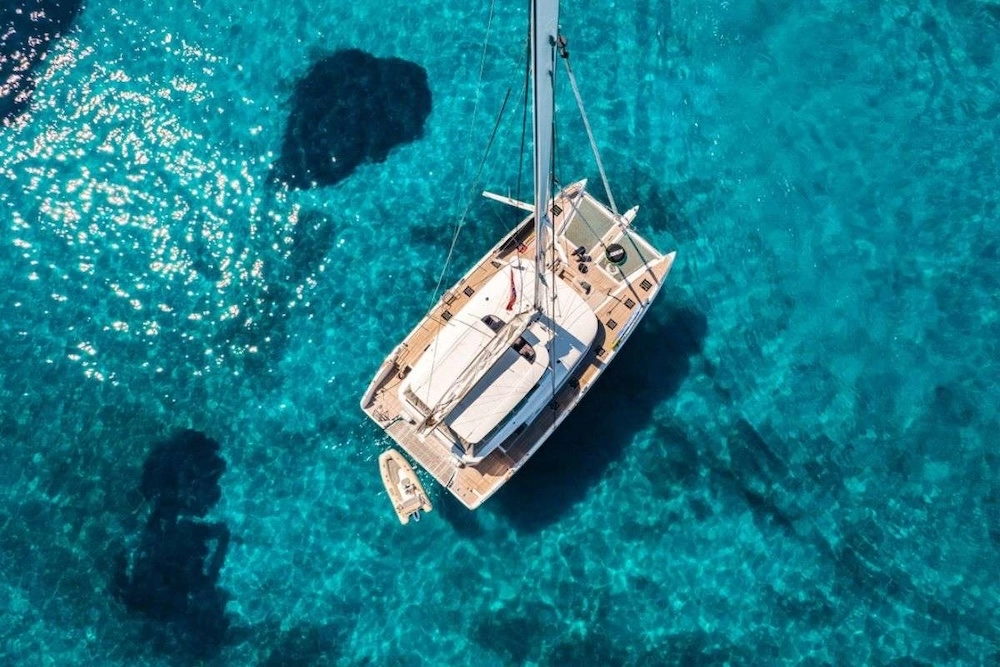
How Much Does It Typically Cost To Rent A Catamaran In Greece 3
Money-Saving Advice for Greece’s Catamaran Rentals
A memorable holiday can be purchased by renting a catamaran in Greece. But the expenses can go up rapidly. Here are some useful suggestions to help you cut costs without sacrificing the fun and luxury of a catamaran charter.
Make a last-minute or early reservation.
Early Booking Benefits
You can get a better deal on your catamaran charter if you reserve it well in advance. Early bird discounts are a common way for charter companies to fill their calendars ahead of the busy season. This tactic guarantees more options in terms of vessel availability and selection in addition to cost savings.
Final-Minute Offers
On the other hand, last-minute reservations can also result in substantial savings, particularly if charter businesses need to replace any empty seats. The discounts can be significant even though the selections could be more constrained.
Select Shoulder Seasons
Choosing to rent a catamaran during the shoulder seasons (late April to May and September to October) can result in significant cost savings. You can still sail in Greece in these months because of the favourable weather, and you’ll be able to escape the busy season (June through August) crowds and expensive pricing.
Choosing Older Models
Even while the newest catamarans have the newest features and technology, older ones might give a similar experience for less money. These boats are more affordable without compromising comfort because they are usually well-maintained and remain opulent.
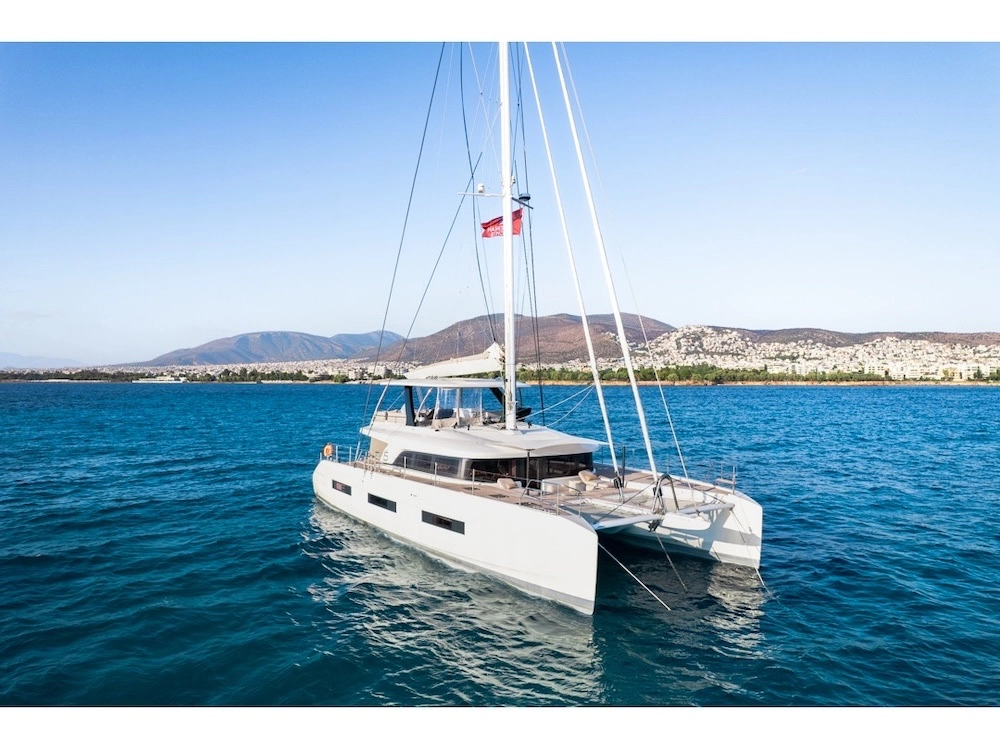
How Much Does It Typically Cost To Rent A Catamaran In Greece 4
Comparing the Costs of Catamarans in Greece and Croatia
Examining the variations in catamaran rental prices amongst well-known sailing locations will provide you perspective and aid with budgetary planning.
Croatian Catamaran Rental Prices
Similar to Greece, there are a number of variables that affect the price of renting a catamaran in Croatia, such as the boat’s age, size, and time of year. During the busiest season, costs in Croatia can range from roughly €3,000 to over €10,000 per week on average. This means that, depending on the details of the charter, Croatia may end up being a little less expensive option.
Why Is Greece Better Than Croatia?
A person’s preferences and the things each place has to offer are usually the deciding factors when choosing between Greece and Croatia. Greece is home to ancient buildings, well-known islands like Santorini and Mykonos, and, for the most part of the year, perhaps superior weather. With its rocky coastline, many peaceful islands, and frequently less crowded sailing spots, Croatia has its own unique charm.
Extra Expenses to Take Into Account
Plan ahead for any unforeseen expenses when organising your Greek catamaran hire to avoid unpleasant surprises.
Costs of the Crew and Skipper
It is imperative to hire a captain if you are not an experienced sailor. In Greece, the cost of hiring a skipper might raise your charter expenses by approximately €150 to €200 per day. See navigating the Greek seas for more information on skipper fees. If you decide to hire a chef or hostess, the cost of the crew will also increase.
Mooring fees, provisions, and fuel
- Fuel Costs: These will change according to how much you motor and sail.
- Mooring Fees: Particularly in well-liked areas, the cost of docking at several marinas can mount up.
- Provisions: Set aside money for food and drink, whether you go out or stock up at neighbourhood markets.
Using these money-saving techniques and knowing how much chartering costs in various areas will save you money, you’ll be able to plan your catamaran vacation more wisely.
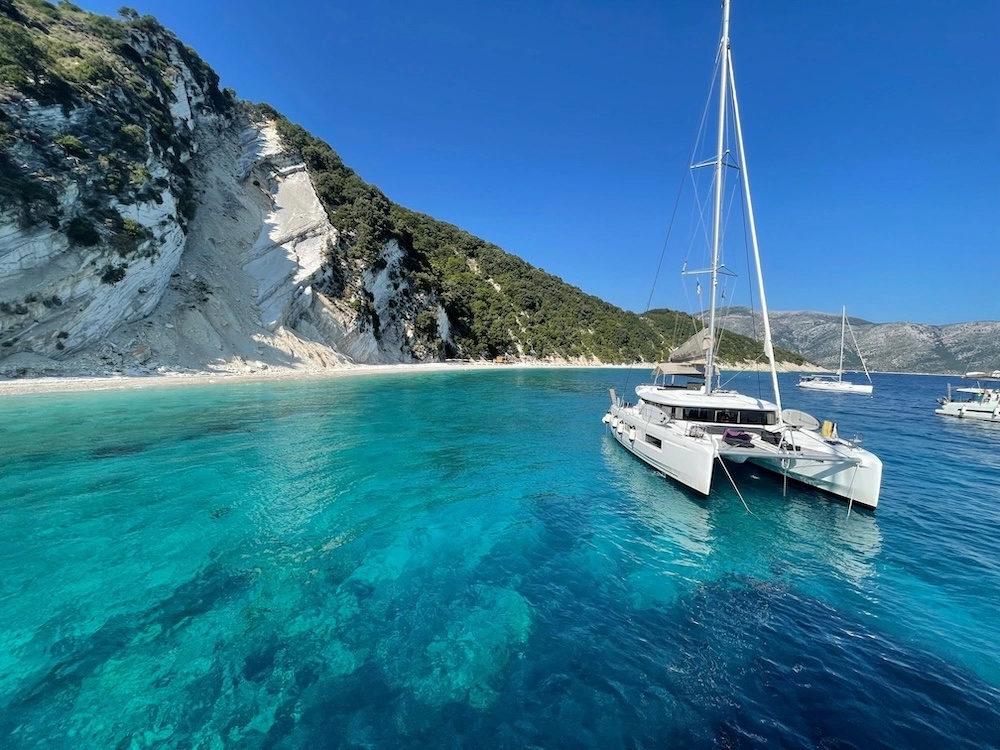
How Much Does It Typically Cost To Rent A Catamaran In Greece 5
Getting Ready for Your Catamaran Adventure in Greece
It takes more than just knowing how much something will cost to organise and enjoy a catamaran charter in Greece. The final section provides vital advice on how to pack, plan your route, and take other factors into account to make your sailing vacation as smooth and enjoyable as possible.
Packing Essentials for a Catamaran Trip
What to Bring on a Catamaran Trip
The way you prepare for a land-based trip differs from that of a catamaran voyage. Here are a few essentials:
- Lightweight and Layered Clothing: Pack lightweight, easily-layered clothing because the seaside weather might change rapidly.
- Marine-Safe Sunscreen: shield your skin without endangering it.
- Non-Slip Shoes: Decks can be slippery, particularly after rain.
- Waterproof Bags: Keep your valuable documents and electronics dry.
- Seasickness Remedies: Even if you don’t typically feel seasick, be ready.
- Snorkeling Gear: Discover the aquatic environment without having to wait for a rental.
Creating the Ideal Schedule
Discovering and Unwinding in Moderation
Sightseeing and leisure should be balanced, even though it may be tempting to jam as many activities and island excursions as possible into your schedule. Here are some pointers:
- Must-Visit Destinations: Decide which important locations, like the Milos caverns or the caldera of Santorini, you really must see because of their natural beauty or cultural value.
- Leisure Time: Give yourself plenty of time to unwind on your catamaran. Taking advantage of your boat’s facilities might be just as fulfilling as going land exploration.
- Flexible Scheduling: Allow for unforeseen events or last-minute decisions to spend more time in an area that piques your interest in your itinerary.
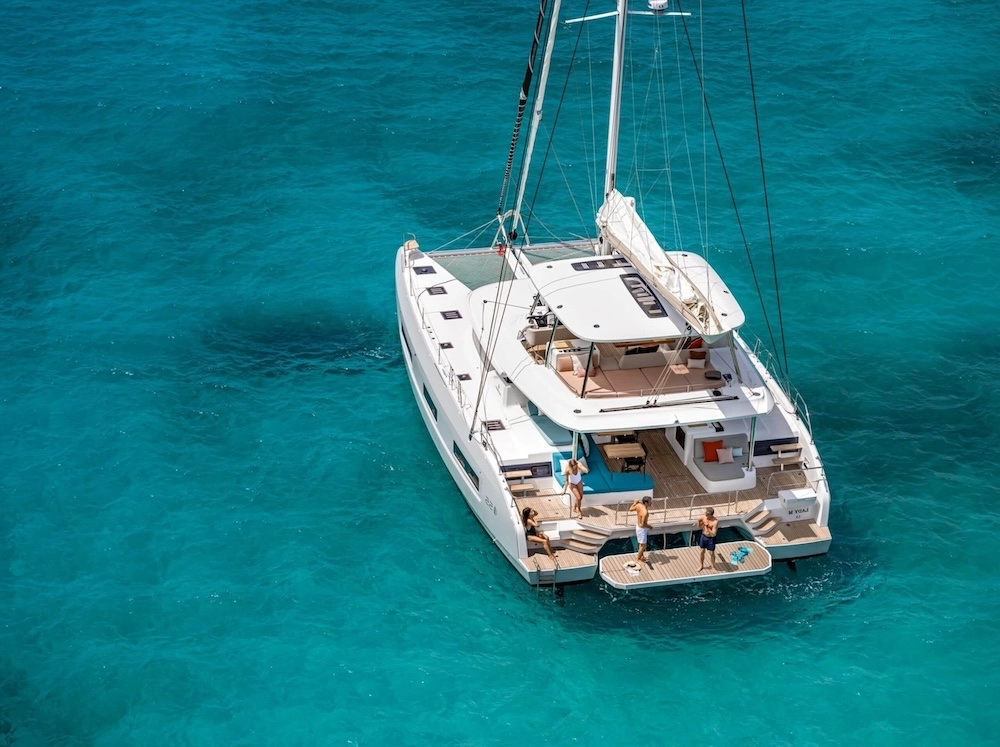
How Much Does It Typically Cost To Rent A Catamaran In Greece 6
Safety and Navigational Considerations
Recognising Local Sailing Conditions
Because of the unpredictable tidal levels and wind patterns, navigating the Greek waterways can be difficult. Here are some things to think about:
- Hire a Local Skipper: A local skipper can improve your vacation even if you have some sailing expertise by guiding you safely through challenging passages and providing information about the surrounding marine environment.
- Safety First: Make sure your catamaran has the newest safety gear, such as flares, life jackets, and a fully stocked first aid bag.
- Briefing and Drills: Engage fully in safety briefings and be familiar with the fundamental emergency procedures on your catamaran.
Environmental and Legal Responsibilities
Respecting Maritime Laws
Make sure you understand and abide by all applicable local maritime rules, including those pertaining to protected marine areas and speed limits.
Encouraging Eco-Friendly Travel
Respect the marine environment by:
- Reducing the use of plastic.
- Making certain that nothing is mishandled.
- Making certain that nothing is mishandled.
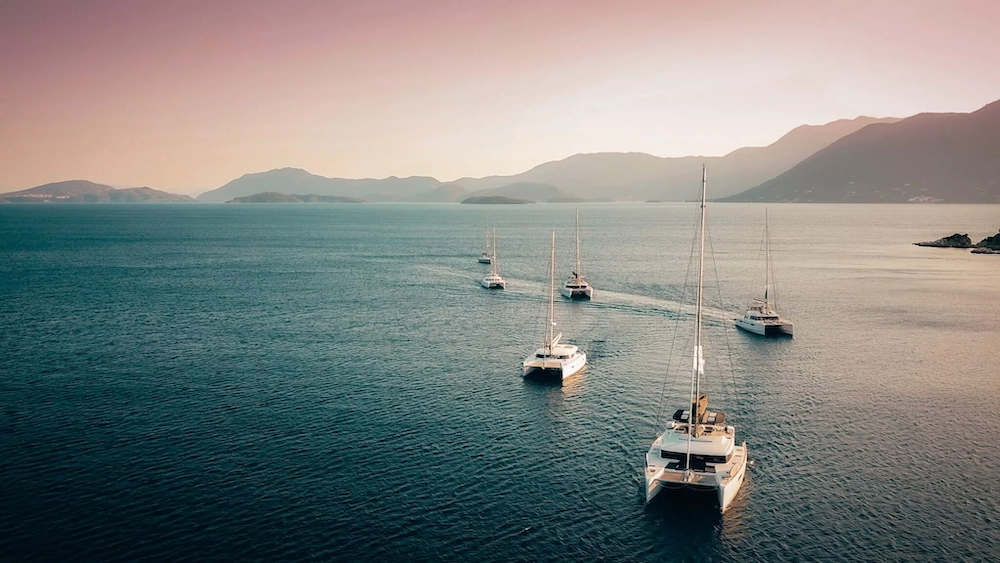
How Much Does It Typically Cost To Rent A Catamaran In Greece 7
Improving Your Understanding of Local Culture
Engaging Activities
Involve yourself in local culture to make your trip even more enjoyable. To have a greater understanding of the local way of life and customs, take part in a traditional Greek cooking class, attend a festival, or just talk to the locals.
You can make sure that your Greek catamaran rental is more than just a trip—rather, it will be an unforgettable adventure—by paying attention to these thorough planning and preparation guidelines. You may experience the unmatched freedom that comes with sailing the Aegean Sea, appreciate the rich local culture, and take your time exploring the breathtaking Greek islands.

